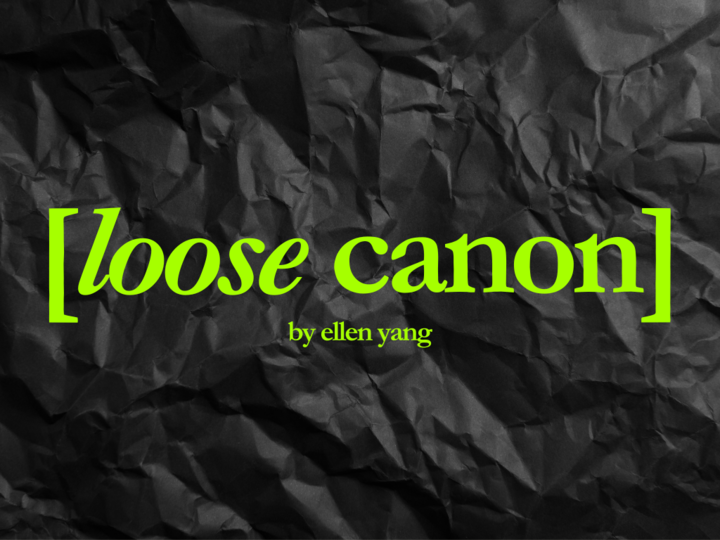Editor’s Note: This article is a review and includes subjective thoughts, opinions and critiques.
In the age of mass information, the book is a rare yet valuable medium. Its limited volume — with words fitting neatly within only a few hundred pages, rather than a few thousand pixels on a screen — creates a sacred space for language.
But who is still reading physical books, much less going to bookstores, when it’s so much faster, simpler and cheaper to consume content online?
I found the answer in a small bookstore located outside of the weekly farmer’s market in Campbell, CA.
Independent bookstores like Recycle Bookstore would argue everyone should still be reading and buying books. With two locations in the Bay Area, it provides physical books at discounted prices and actively engages readers in the exchange cycle.
Offering buy-backs and book trading, Recycle Bookstore curates a diverse and vibrant collection, housing both popular and lesser-known titles, from “Slouching Toward Bethlehem” by Joan Didion to “Tom Lake” by Ann Patchett. The bookstore encapsulates the essence of intentional reading, fostering an environment where every book finds a purpose — and an audience.
Recycle Bookstore boasts a loyal and local fanbase of all ages and has been able to maintain it through its focus on redefining people’s relationships with their bookshelves. Rather than just encouraging people to add to their collections by buying more books, they encourage them to refine collections through a buy-back service that allows patrons to sell and trade in their books. At Recycle Bookstore, they are not replacing the library: They are fostering something new altogether, where people do not see their unread or forgotten books as a blocker to reading, but rather, as an opportunity to find books that do excite them.
Between the ages of five and 15, I was a voracious reader. My father took me to our local library almost every other day after school. It was in the bookshelves of the YA fiction section that I fell in love with the world and met myself. I read between three and five books a week.
Today, despite language being the very focus of both my majors (English and linguistics), I’m lucky if I even read three books a month of my own volition. Unfortunately, I’m not alone. In 2022, the average American spent a mere 15 minutes a day reading, resembling pre-pandemic levels. Both genders exhibited a decline in reading compared to the previous decade, with the average American adult completing just over five books per year. Despite American’s record access to libraries, bookstores and online resources, we seem to have lost the magic of reading.
In the realm of literature, the act of buying books transforms the reader’s relationship with words, offering a unique experience that extends beyond the confines of library walls. Growing up, buying books was a luxury my family couldn’t afford, so the local library became my sanctuary. Why buy when you can borrow for free?
However, as my appreciation for literature has matured, so has my understanding of the power of building a personal library. As humans, we have a natural urge to collect and preserve beautiful things. It is for that same reason that we even write books at all: to hold onto words in a world that values speed over sentiments and quantity over quality. Modern overconsumption is powered by the demand for more, faster — and yet it is also the very thing that fatigues and discourages us from enjoying stories again.
I’ve battled this by starting an 80/20 practice with my reading habits. While 80% of the books I read will first be read on my Kindle, 20% of them will be books that I serendipitously find at a bookstore. Of the 80% I read digitally first, I will buy the physical copy if I find myself already heavily marking it up or returning to certain pages again and again. Most recently, “Tomorrow and Tomorrow and Tomorrow” by Gabrielle Zevin joined my shelves. So did “Wild” by Cheryl Strayed — a book I found in person and bought for one-third of the original price at Recycle Books.
By being more intentional about how I read, I also establish why I read.
It’s often said that you don’t truly own a book until you’ve read it, but perhaps the reverse holds true as well. To rekindle the love for reading in the modern reader, we must allow them to reclaim ownership of words. Holding a copy of a book and letting it take up space in your room gives it physical and emotional weight, for better or for worse. While some may fall in love with reading again by reinvesting in books, others may benefit from letting go of the books cluttering their space to make room for new ones.
After all, it’s also crucial for modern readers to be mindful of sustainability. Here, the concept of recycling takes center stage, and local Bay Area establishments like Recycle Bookstore emerge as beacons of conscientious reading habits.
The name “Recycle Bookstore” itself serves as a poignant reminder of what we, as modern readers, need more of — to recycle our very human need to read with purpose. In embracing the cyclical nature of literature, we can reinvigorate our connection to words, allowing them to transcend the transience of digital information.
Perhaps the point is to not buy books, but rather, to find ways to come back into the ownership of language.
